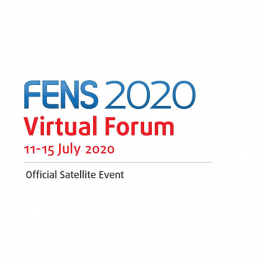Start
July 10, 2020
End
July 10, 2020
Address
The University of Edinburgh Edinburgh Neuroscience, 1 George Square, Edinburgh EH8 9JZ View mapThe Synaptic Tagging and Capture (STC) hypothesis, proposed by Frey and Morris (Frey & Morris, Nature, 1997), was developed to account for a puzzling issue regarding protein synthesisdependent long-term potentiation (LTP). If plasticity related proteins (PRPs) are required to stabilise synaptic potentiation over time, how do they find their way to recently potentiated synapses? The original studies established that protein synthesis-dependent LTP could be induced during the inhibition of protein synthesis provided other pathway-independent tetanising events had or were about to occur recently to enable diffuse availability of PRPs. Subsequent research established a range of phenomena ranging from competition effects when PRP availability is low, STC at single dendritic spines, activity-dependent tag re-setting and crosscapture. A continuing area of active research 20 years on, there is now interest in identifying contributions of neuromodulatory systems and the relevance of STC to the mechanisms enabling engram circuits to be created and later re-activated. From a functional perspective, the topic of STC has also expanded to include its potential relevance such as the impact of novelty on the maintenance of memory in the concept of behavioural tagging. This Satellite offers an exciting opportunity to hear about new ideas on the mechanistic aspects of synaptic tagging itself, and its potential relevance to the consolidation and re-consolidation of memory. It will be of interest to a broad range of behavioural, physiological, cellular and molecular neuroscientists. The satellite ends with a talk from one of the leading groups working on ‘engram’ technology.
MORE DETAIL
Website
https://www.ed.ac.uk/discovery-brain-sciences/our-staff/research-groups/prof-richard-morris

